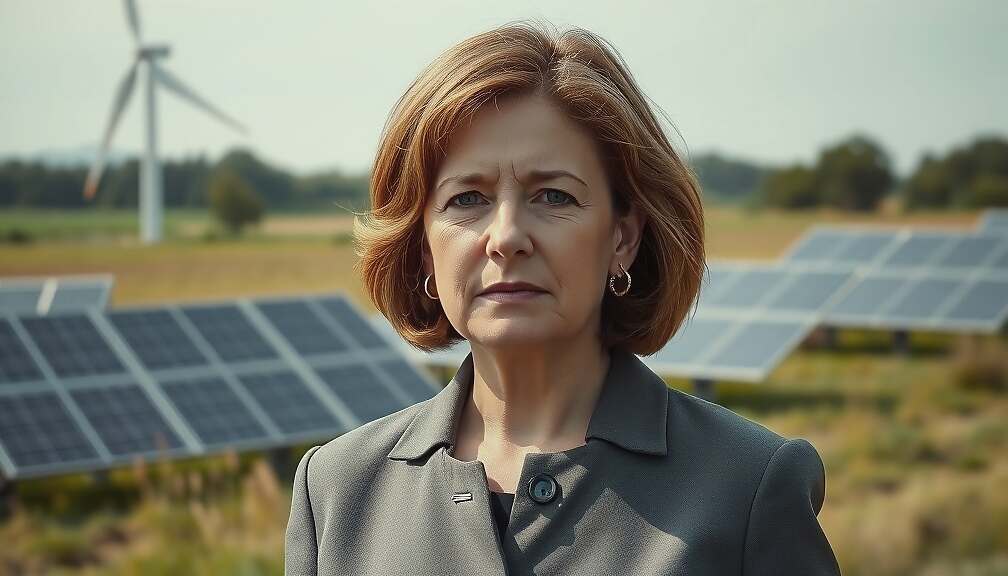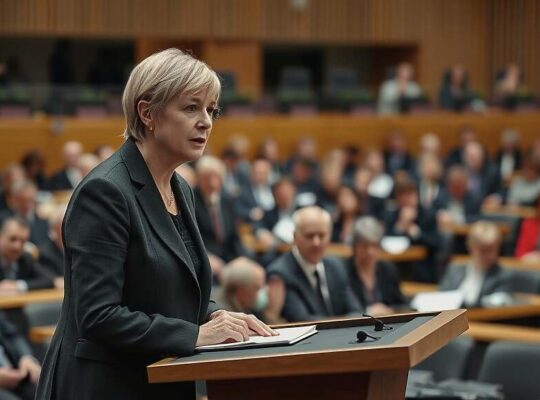Federal Minister for Economic Affairs, Katherina Reiche of the Christian Democratic Union (CDU), is advocating for a recalibration of the expansion of solar and wind energy infrastructure. In an interview with “Bild am Sonntag” Reiche stated that the growth of renewable energy sources must be more closely aligned with the development of the national power grid, a measure she claims will benefit both businesses and consumers.
Germany’s firms and households consumed a total of 464 terawatt-hours (TWh) of electricity last year. Projections in the draft Energy Law (EEG) foresee a rise to 670 TWh within five years, with a potential doubling to 1,000 TWh by 2035. The necessary expansion of the power grid to accommodate this growth is estimated to cost approximately €600 billion by 2045.
Sources within the German government are reportedly questioning the financial feasibility of this extensive grid development. Minister Reiche emphasized the need for gas-fired power plants as a reliable backup during periods of low wind and solar energy production, which can often last for weeks. “Our electricity supply must be secure even then” she stated, indicating plans to initiate the tendering process for initial gas-fired power plants later this year.
The sentiment is echoed within industry circles. Holger Lösch, Deputy Managing Director of the Federation of German Industries (BDI), told “Bild am Sonntag” that the current, highly ambitious and costly energy transition planning needs greater alignment with actual demand and cost developments.
Concerns about grid capacity have also been raised by Oliver Zipse, Chairman of the Board of Directors of BMW. Zipse warned of potential overloading of the grid, particularly given the European Union’s mandate that only electric vehicles can be manufactured from 2035 onwards. He questioned the feasibility of electrifying new car production and charging across Germany within a decade, suggesting that fully adapting the grid for a 100% electric vehicle share could require 30 to 40 years and represent a significant, often overlooked financial burden.












